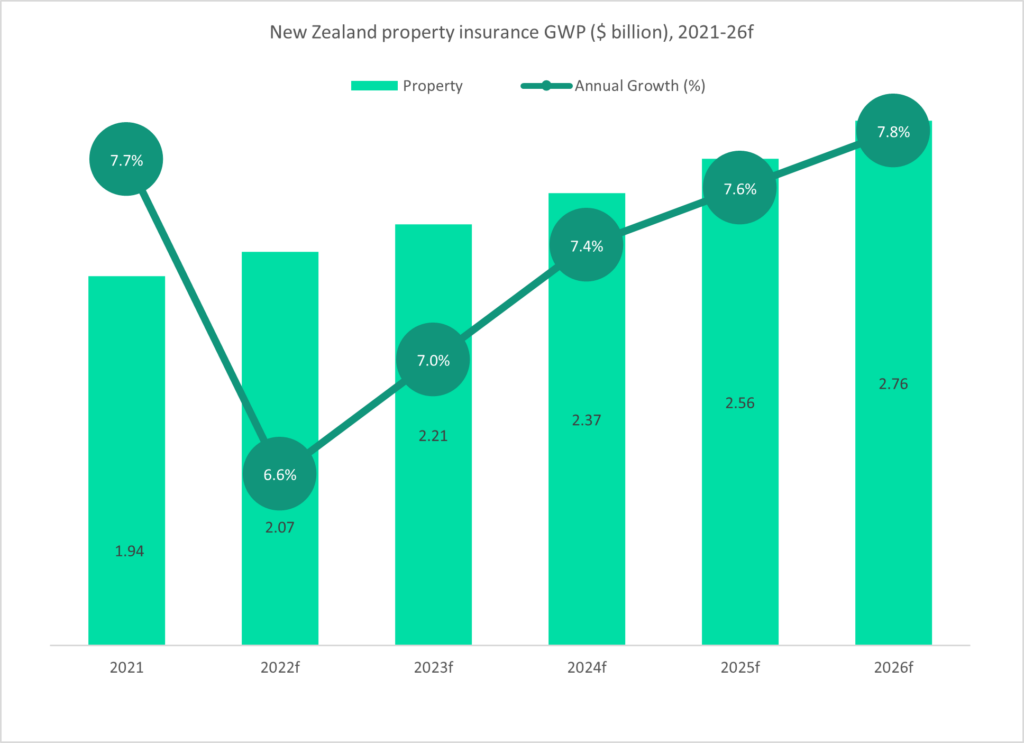In August 2022, severe rain in New Zealand caused disastrous floods and landslides, forcing residents to flee their homes as the flooding rendered them uninhabitable. Property claims in 2022 will be greatly impacted as a result. Insurers will be able to limit the social and economic expenses associated with such occurrences and lower their risks from insured losses thanks to upcoming regulatory changes that will help protect buildings amid worsening climate conditions.
Gross written premiums (GWP) are set to record a compound annual growth rate of 7.3% from 2021 to 2026 according to GlobalData’s Global Insurance Database. Additionally, property insurance accounted for 42% of all general insurance GWP in 2021, with 7.7% growth for the year despite the ongoing COVID-19 pandemic. Rising natural hazard costs have led insurers to increase the cost of cover in a bid to reduce risk.

According to the Insurance Council of New Zealand, severe weather damage claims surged in 2021 as a result of climate change. From July 2021 to March 2022, weather-related losses were around $240.9m. The most severely impacted areas were motor lines, residential property, and commercial property.
There are numerous natural threats and hazards in New Zealand, such as landslides, earthquakes, and floods. Because they face greater natural risks, some regions are riskier to live in than others. Insurance used to be priced solely on the size of the property, regardless of where it was located. As claims costs rise, insurers have moved towards basing premium rates on the location and history of a property. The cost of home insurance has increased as a result of recent catastrophic disasters.
In August 2022, the New Zealand government unveiled its first-ever climate adaption strategy, which will be implemented over the next six years. The National Adaptation Plan mentions the potential relocation of low-lying households and assets as flooding becomes more frequent due to rising seas and more frequent storms. The proposal also includes modifications such as building seawalls and elevating homes.
Insurers will need to raise premiums to offset the risks associated with the rising threat of weather-related claims from climate change in New Zealand. As a result, GWP will increase in the country until infrastructure is built that can support properties in risk-prone areas, helping to reduce the cost of premiums so that both the insurer and the insured are protected.
How well do you really know your competitors?
Access the most comprehensive Company Profiles on the market, powered by GlobalData. Save hours of research. Gain competitive edge.

Thank you!
Your download email will arrive shortly
Not ready to buy yet? Download a free sample
We are confident about the unique quality of our Company Profiles. However, we want you to make the most beneficial decision for your business, so we offer a free sample that you can download by submitting the below form
By GlobalData






